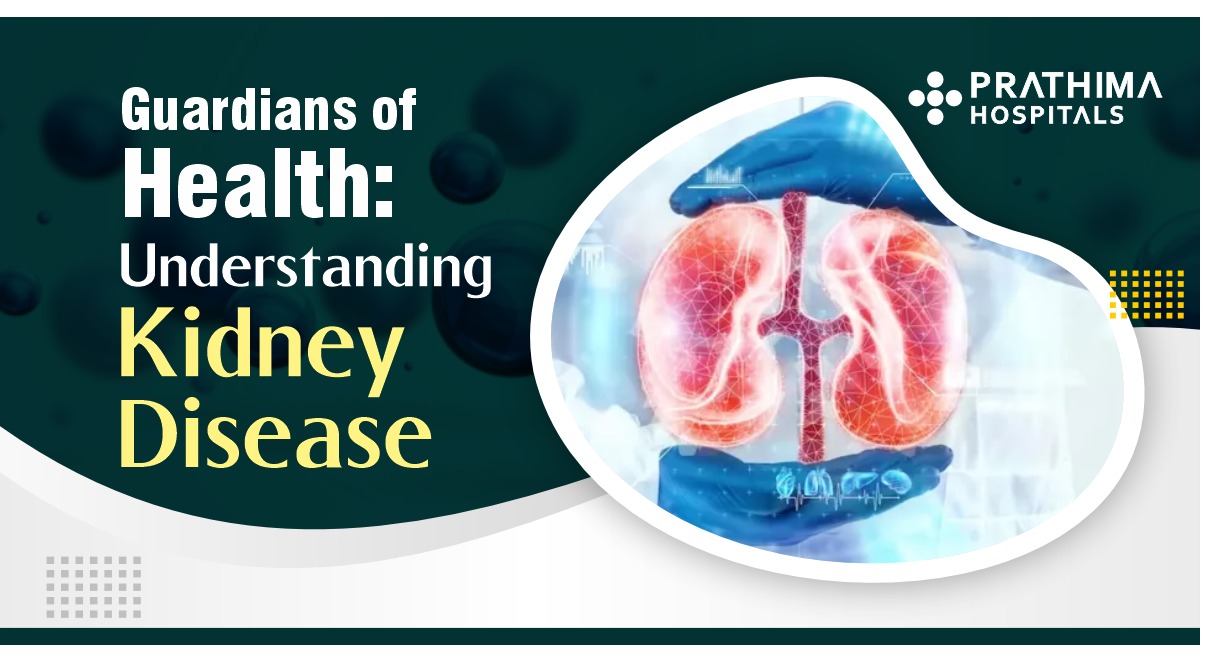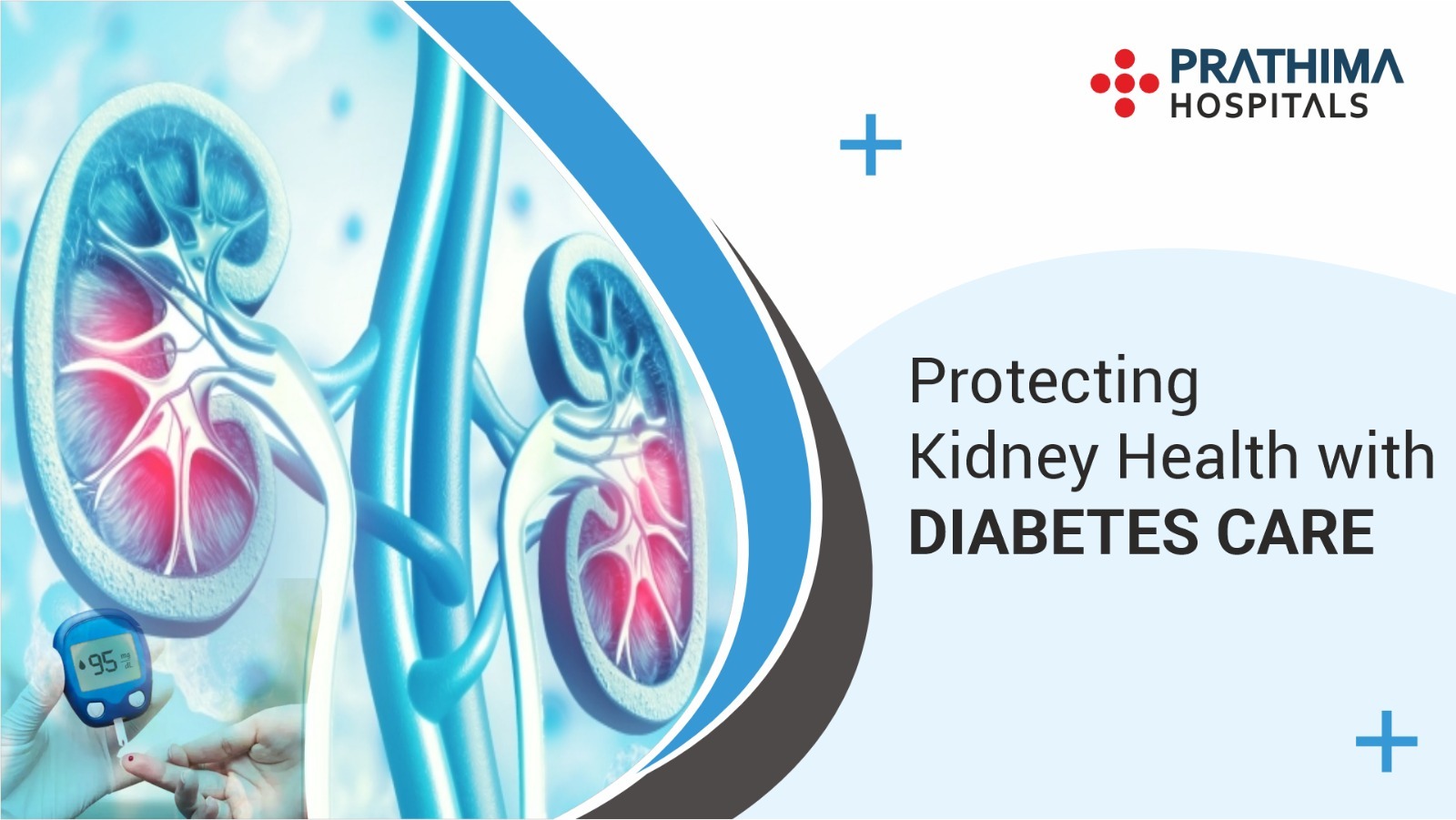An overview of chronic kidney disease causes, symptoms, diagnosis, and treatment

Introduction:
Chronic Kidney Disease (CKD) is a condition where the kidneys gradually lose their function over time. The kidneys are vital organs that filter waste and excess fluids from the blood. They also help regulate blood pressure and produce hormones that promote red blood cell production and bone health.
When the kidneys are damaged, waste and fluids can build up in the body, leading to a host of health problems. Chronic Kidney Disease is a progressive condition that, if left untreated, can lead to kidney failure, requiring dialysis or a kidney transplant, for more information consult the best Nephrologist in Hyderabad.
In this article, we will discuss the causes, symptoms, diagnosis, and treatment of Chronic Kidney Disease.
Causes of Chronic Kidney Disease:
The most common causes of Chronic Kidney Disease are diabetes and high blood pressure. These conditions damage the blood vessels in the kidneys and prevent them from functioning properly. In fact, diabetes and high blood pressure account for more than two-thirds of all cases of Chronic Kidney Disease.
Other causes of CKD include:
1.Glomerulonephritis: This is a group of diseases that affect the tiny filters in the kidneys. These filters, called glomeruli, become inflamed and damaged, leading to CKD.
2.Polycystic Kidney Disease: This is an inherited condition where cysts grow in the kidneys, eventually causing them to lose function.
3.Kidney Stones: Repeated kidney stone formation can lead to chronic kidney disease.
4.Urinary Tract Infections: Repeated UTIs can lead to kidney damage.
5.Autoimmune Diseases: Conditions such as Lupus and IgA Nephropathy can lead to kidney damage.
6.Inherited Conditions: Some rare genetic conditions, such as Alport Syndrome, can cause CKD.
Symptoms of Chronic Kidney Disease:
In the early stages, Chronic Kidney Disease may not have any symptoms. As the disease progresses, however, the following symptoms may occur:
1.Fatigue and Weakness: The kidneys produce a hormone called erythropoietin that promotes the production of red blood cells. When the kidneys are damaged, there may not be enough of this hormone, leading to fatigue and weakness.
2.Swelling: The kidneys help regulate the balance of fluids in the body. When they are not functioning properly, excess fluids can build up, leading to swelling in the legs, ankles, feet, and face.
3.Changes in Urination: As the kidneys become damaged, changes in urination can occur. These changes may include:
a. Increased Urination: The kidneys may try to flush out excess fluids, leading to more frequent urination.
b. Decreased Urination: As the kidneys lose function, they may produce less urine.
c. Blood in the Urine: Damaged kidneys may leak blood into the urine.
4. Shortness of Breath: When the kidneys are not functioning properly, excess fluids can build up in the lungs, making it difficult to breathe.
5. Nausea and Vomiting: Excess waste products in the blood can cause nausea and vomiting.
6. Itching: Excess waste products can build up in the blood and cause itching.
Diagnosis of Chronic Kidney Disease with the help of Best Nephrologists in Hyderabad
Chronic Kidney Disease is often diagnosed through routine blood and urine tests. These tests can detect high levels of waste products in the blood, such as creatinine and urea, and can also detect protein in the urine.
If CKD is suspected, additional tests may be ordered on the directions of a nephrology doctor in kukatpally
including:
1.Imaging Tests: Ultrasound, CT, or MRI scans can provide images of the kidneys and help detect any abnormalities.
2.Kidney Biopsy: A small piece of kidney tissue is removed and examined under a microscope to determine the cause of kidney damage.
Treatment of Chronic Kidney Disease:
The goal of treatment for Chronic Kidney Disease is to slow down the progression of the disease and manage its symptoms. The treatment plan will depend on the underlying cause of the disease and the stage of the disease.
1. Lifestyle Changes: The first line of treatment for CKD is often lifestyle changes, such as:
a. Controlling Blood Pressure: High blood pressure can damage the kidneys, so controlling blood pressure is essential. This may involve medication, exercise, and dietary changes.
b. Managing Blood Sugar: If diabetes is the underlying cause of CKD, controlling blood sugar is essential. This may involve medication, dietary changes, and regular exercise.
c. Quitting Smoking: Smoking can damage the blood vessels in the kidneys, so quitting smoking is important.
d. Managing Cholesterol: High levels of cholesterol can damage the blood vessels in the kidneys, so managing cholesterol is important.
e. Healthy Diet: A healthy diet can help control blood pressure, blood sugar, and cholesterol levels. A dietitian can help create a personalized diet plan.
2. Medications: In some cases, medications may be used to manage the symptoms of CKD, such as:
a. Anemia: If CKD has caused anaemia, medications may be used to stimulate red blood cell production.
b. Bone Disease: If CKD has caused bone disease, medications may be used to regulate calcium and phosphorus levels.
c. Blood Pressure: If lifestyle changes are not enough to control blood pressure, medications may be prescribed.
d. Cholesterol: If lifestyle changes are not enough to manage cholesterol levels, medications may be prescribed.
3. Dialysis: If the kidneys have lost most of their function, dialysis may be necessary. Dialysis is a process that removes waste and excess fluids from the blood. two types of dialysis they are as follows.
a. Hemodialysis: In hemodialysis, a machine is used to filter the blood outside the body.
b. Peritoneal Dialysis: In peritoneal dialysis, a solution is introduced into the abdominal cavity through a catheter. The solution absorbs waste products, which are then drained from the body.
4. Kidney Transplant: A kidney transplant is another option for people with CKD. The patient receives a transplant of a healthy donor kidney. The patient will need to take medication to prevent the rejection of the new kidney.
Prevention of Chronic Kidney Disease:
Prevention of CKD is important, as it is a progressive condition that can lead to kidney failure. The following steps can help prevent CKD:
1.Control Blood Pressure: High blood pressure is a leading cause of CKD, so controlling blood pressure is essential.
2.Manage Blood Sugar: Diabetes is a leading cause of CKD, so managing blood sugar is important.
3.Quit Smoking: Smoking can damage the blood vessels in the kidneys, so quitting smoking is important.
4.Exercise Regularly: Regular exercise can help control blood pressure, blood sugar, and cholesterol levels.
5.Eat a Healthy Diet: A healthy diet can help prevent CKD by controlling blood pressure, blood sugar, and cholesterol levels.
By following these steps, it is possible to prevent or delay the onset of CKD.
Conclusion:
Chronic Kidney Disease (CKD) is an advanced disease that can lead to kidney loss. Early detection and treatment are important to slow down the progression of the disease and manage its symptoms. The treatment plan will depend on the underlying cause of the disease and the stage of the disease. In addition, preventing CKD is important to maintain good kidney health and overall health. By controlling blood pressure, managing blood sugar, quitting smoking, exercising regularly, and following a healthy diet, it is possible to prevent or delay the onset of CKD. It is important to consult the best nephrologist in kachiguda to develop a personalized prevention and treatment plan.





